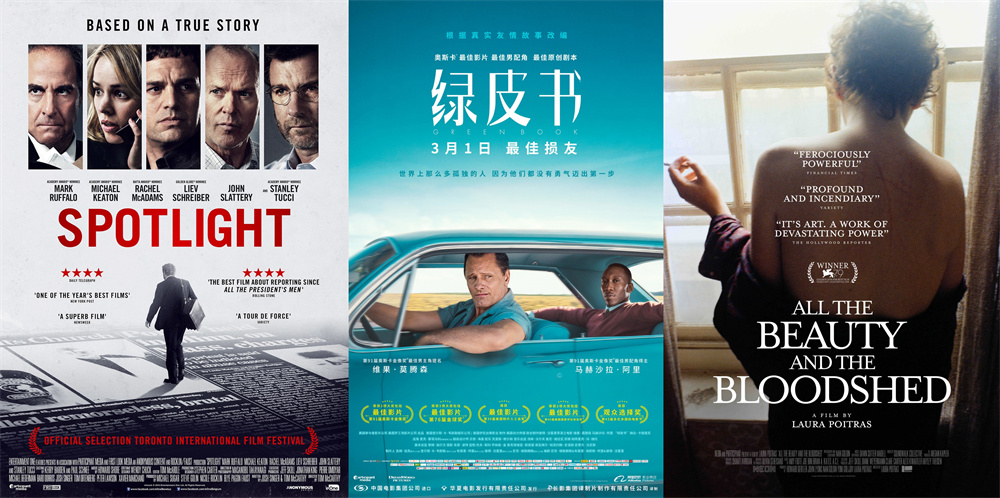
On April 16, local time, Participant Media, which had been working in Hollywood for 20 years, announced that it would close down. The company's chairman, Jeffrey Skoll, told his employees that everyone would be laid off and all the company's ongoing film and television projects would be suspended.
For ordinary audiences, they may not know the name of Participant Media Co., Ltd., but I believe everyone is familiar with the films they have participated in producing over the years, such as the Oscar-winning "Green Book", "Spotlight", "Roma", "American Factory", "An Inconvenient Truth", and the documentary "All the Beauty and Blood and Tears" which won the Golden Lion Award at the Venice Film Festival.

Some of the film posters produced by “Participants”
Overall, in the 20 years since its establishment, the company has participated in the production or investment of 135 films, which have been nominated for 73 Academy Awards and won 21 of them, including two Best Picture Awards, four Best Documentary Feature Awards and two Best International Film Awards. The works they participated in basically focus on various social issues, such as "The Help" reflecting racial issues and "The Cove" focusing on environmental issues, which also reflects the position attribute represented by the company's name "Participant".
Back in January 2004, Jeffrey Skoll, a Canadian Jewish businessman who made his fortune by running the e-commerce website eBay, came to Hollywood, Los Angeles with the ideal of changing society through movies and founded this film company. In 2005, the political thriller "Syriana" starring George Clooney became the first work they participated in producing.
By 2009, Participant Media had become a force in the world of Hollywood independent films, and Fortune magazine wrote a long article titled "Canadian Billionaire Superhero Loves to Invest in Serious Movies", commenting that the company never shoots "typical Hollywood movies, but instead serious works involving major themes such as ecological apocalypse, oil terrorism, education reform and women's rights. In short, they all reflect Jeffrey Skoll's own progressive worldview, intended to inspire everyone to unite and achieve large-scale social change."
In 2014, Skoll also said in a speech at UCLA, "I founded Participant Media because I believe in the power of movies and that good stories can lead to positive social change. I want to create entertainment works that can influence society. I believe that feature films, documentaries, television, and drama can inspire audiences to participate in solving real-life problems, and this approach is by no means a passing fad, but will become the future of the entire entertainment industry."
However, on April 16, the company's employees received a mass email from the chairman. In the letter, he admitted that this was a "very difficult decision", but he had decided that "it was time to re-plan the next stage of my life". According to the New York Times, the works of Participant Media Co., Ltd. all rely on major Hollywood film companies and streaming companies for distribution; but to this day, Hollywood, both online and offline companies, are tightening their spending, which is very unfavorable to Participant. Moreover, based on the boss's own ideas, they never produce any entertainment works, and all they shoot are relatively niche content. In the current situation where the overall North American box office is weak, the labor costs of the film industry are rising, and film and television companies are under pressure from Wall Street and pay special attention to the profitability of their works, it is not a big surprise to suddenly announce the closure.
"Streaming services such as Disney+ and Netflix have begun to sell ads, and advertisers prefer programs that are non-political and open to the general audience. It is more difficult than ever to find buyers for documentaries and films that pursue social justice," said Brooks Barnes, a writer for The New York Times. According to him, the company has actually been operating in debt over the years, relying entirely on the boss to make up for the shortfall, and has been unable to break even. "When faced with questions about profitability, executives involved often remain silent, or simply say that movie investments should not only consider profits but also social benefits."


